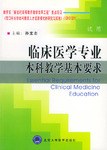

具体描述
CHAPTER 1<br >High Finance~High Politics<br >International banking used to be regarded not so long ago as<br >a straightforward commel~clal activity in which tidy sums of<br >money could be earned. Bankers compared opportunities in<br >domestic and foreign markets, totted up the costs and benefits<br >of alternative profit strategies, and allocated their resources<br >accordingly. Even with formal political-risk analysis thrown<br >in, financial decisions were ostensibly divorced from consid-<br >erations of foreign policy. High finance, in principle at least,<br >was kept separate from the "high politics" of international<br >diplomacy.<br > That era is over. International banking has expanded dra-<br >matically in recent decades--and with that "international-<br >ization," ilm, ~king operations have become inc~aSingly<br >9o~iticized, as involvements with foreign governments have<br >rapidly multiplied in scores of countries from Argentina to<br >Zaire, from Poland to the Philippines, from Libya to South<br >Africa. Bankers today have no choice but to pay more atten-<br >tion to foreign policy issues in the ordinary course of their<br >business, in practice, high finance can no longer be kept sep-<br >arate from hig.h politics. Indeed, in the contemporary era, they<br >are increasingly one and the same.<br > "~gha-t~s, this mean for U.S. foreign policy? That is the<br >question addressed by this book. With the growing interna-<br ><br >
作者简介
目录信息
读后感
评分
评分
评分
评分
用户评价
初读这本书时,我差点把它合上了,因为开篇的理论框架构建得太过学术化和晦涩,充满了对“机构刚性”和“跨国资本套利机制”的严密论证,老实说,门槛相当高。然而,一旦熬过了前三章,后面的应用案例简直是醍醐灌顶。作者的叙事手法从宏观的理论推导突然转向了极其微观、甚至带点传记色彩的金融人物侧写,这种强烈的反差带来的冲击力是惊人的。我感觉自己像是在阅读一部关于现代世界秩序的“黑幕史”,只不过这里的“黑幕”是用严谨的财务报表和外交电报来支撑的。它展示了华尔街顶层人士如何将国家安全叙事巧妙地融入到他们的商业扩张计划中,而且不是简单的“好人与坏人”的二元对立,而是复杂的、充满灰色地带的利益耦合。对于那些对国际金融史感兴趣,但又厌倦了流于表面的历史叙述的读者来说,这本书无疑是一剂猛药,它强迫你直面资本逻辑的冷酷与高效,让你明白今天的很多国际冲突,其根源可能深埋在几十年前的贷款协议里。
评分这本书简直是金融分析的教科书,作者对全球银行业的运作逻辑看得太透彻了,每一个章节都像剥洋葱一样,一层层揭示出那些隐藏在光鲜数据背后的权力博弈和利益驱动。我特别欣赏作者在探讨新兴市场风险敞口时的那种冷静和批判性视角,完全没有被主流叙事所迷惑。比如,书中对特定几个国际金融机构在某次区域性债务危机中的角色描述,细致到令人咋舌,仿佛作者本人就是当时决策桌上的一员。它不仅仅是记录历史,更是在解构历史进程中金融资本是如何被当作地缘政治工具来使用的。读完之后,我对“中立的金融服务”这个概念彻底绝望了,取而代之的是一种对全球资本流动更深刻的、近乎宿命论的理解。书中的案例分析深度极高,需要读者对宏观经济学和国际关系理论有一定的基础,否则可能会在术语和复杂的模型推演中迷失方向,但如果你愿意投入精力,它绝对能将你的认知水平提升到一个新的高度,是那种读完后会让你看新闻时忍不住想翻回去对照的工具书。
评分这本书读起来像是一部关于“看不见的手”如何被有形的手操控的史诗。作者的笔触精准而冷酷,尤其擅长捕捉那些稍纵即逝的政治时机,以及金融精英们如何利用这些时机来固化他们的优势地位。我印象最深的是它对“风险转移”这一概念的细致拆解,它展示了当一个国家的经济体量达到一定程度后,其内部的金融风险是如何系统性地被分摊到更弱小的伙伴身上。这本书的结构安排非常巧妙,它不是线性讲述,而是不断在不同时间和空间维度间跳跃,迫使读者不断进行横向比较,从而发现隐藏在不同危机背后的共同驱动力。对于那些觉得主流经济学过于理想化,希望探究金融系统底层“操作系统”的人来说,这本书提供了一个绝佳的逆向工程蓝图。阅读体验是极其烧脑的,因为它要求读者不仅要理解金融工具,更要理解这些工具背后的意识形态驱动力,读完后,你会发现,理解世界不再仅仅是看谁在掌权,而是看谁在放贷。
评分这本书的价值在于其独特的“双重视野”。一方面,它提供了一个极其精细的金融模型,用来解释为什么某些政策看似荒谬,却在银行家的资产负债表上是完全合理的;另一方面,它又毫不留情地将这些模型置于更宏大的权力场域中进行审视。我特别赞赏作者在处理跨太平洋金融关系时的那种微妙平衡感,既没有陷入反美情绪的窠臼,也没有盲目推崇西方金融体系的优越性。它更像是一份冷峻的诊断报告,清晰地指出了体系内部的结构性缺陷——这些缺陷是如何被设计出来,又如何被精心维护的。行文间,作者引用了大量的官方文件和私人通信,这种一手资料的运用使得论证的力度远超一般的新闻评论。读到关于特定国家主权财富基金被“引导性投资”的部分时,我感到一股寒意,因为它揭示了,即便是最想保持独立的经济实体,也难以逃脱被嵌入全球金融网络的命运。这本书读起来需要耐心,因为它不提供简单的答案,而是提供了一套分析复杂现实的更优越的工具。
评分坦率地说,这本书的文字风格是偏向精英阶层的,它的逻辑链条极其紧密,缺乏为了吸引大众读者而设计的通俗易懂的“钩子”。与其说这是一本面向公众的书,不如说它是一份写给政策制定者和资深分析师的备忘录。书中关于国际货币基金组织与世界银行之间权力分配的章节尤其引人入胜,作者深入探讨了投票权、配额和实际影响力之间的巨大鸿沟。我发现作者在构建论点时,倾向于采用一种近乎结构主义的视角,认为金融市场的“自然倾向”往往会服务于少数既得利益者,而所谓的“市场效率”不过是这种利益最大化的委婉说法。这种颠覆性的解读,配上扎实的计量数据支撑,让人不得不重新审视自己对全球治理的理解。对于那些在金融监管或国际贸易领域工作的人来说,这本书可能不是新知,但它提供了一个重新组织和强化现有知识框架的绝佳机会,尤其是在理解政策传导机制方面,提供了无与伦比的深度。
评分 评分 评分 评分 评分相关图书
本站所有内容均为互联网搜索引擎提供的公开搜索信息,本站不存储任何数据与内容,任何内容与数据均与本站无关,如有需要请联系相关搜索引擎包括但不限于百度,google,bing,sogou 等
© 2026 book.wenda123.org All Rights Reserved. 图书目录大全 版权所有




















